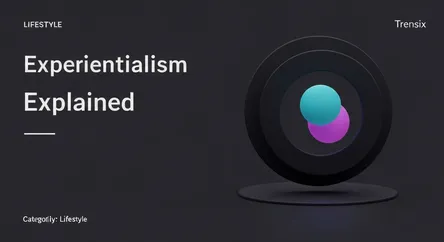Lifestyle
Experientialism Explained

Discover experientialism, the educational philosophy of 'learning by doing.' Learn why hands-on experience is revolutionizing modern education.
What is it?
Experientialism is an educational philosophy centered on the principle of "learning by doing." Championed by theorists like John Dewey, it posits that knowledge is best created through the transformation of experience. Unlike traditional models that rely on passive listening and rote memorization, experientialism involves a cycle of concrete experience, reflective observation, abstract conceptualization, and active experimentation. The core idea is that learners construct their own understanding by directly engaging with a subject, reflecting on that engagement, and applying their insights to new situations. It's not just about the activity itself, but the conscious reflection that follows.
Why is it trending?
Experientialism is gaining traction as a powerful alternative to the perceived limits of conventional classroom teaching. In a world that demands critical thinking, problem-solving, and adaptability, passive learning often falls short. Educational institutions and employers are recognizing that hands-on experiences—like internships, lab work, field studies, and project-based assignments—are more effective at developing practical, real-world skills. This shift prioritizes deeper comprehension and skill application over simple information recall, better preparing individuals for the complexities of the modern workforce and society.
How does it affect people?
For learners, experientialism transforms education from a spectator sport into an immersive activity. This approach significantly boosts engagement, improves knowledge retention, and fosters personal growth by connecting abstract theories to tangible outcomes. It empowers individuals by making them active participants in their own learning journey, encouraging curiosity, initiative, and self-direction. By bridging the gap between classroom theory and real-world practice, it helps people develop crucial soft skills like collaboration, communication, and resilience, making their education more relevant and impactful for their future careers and personal lives.